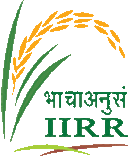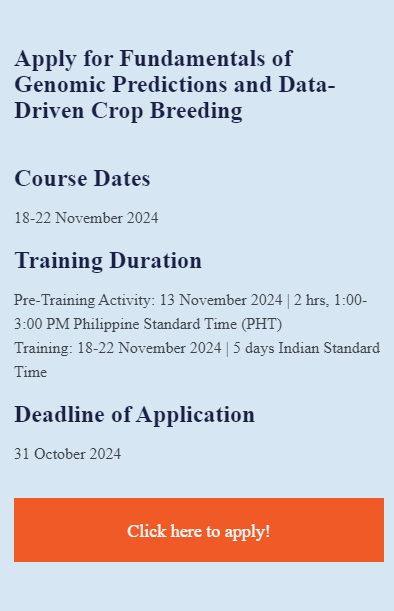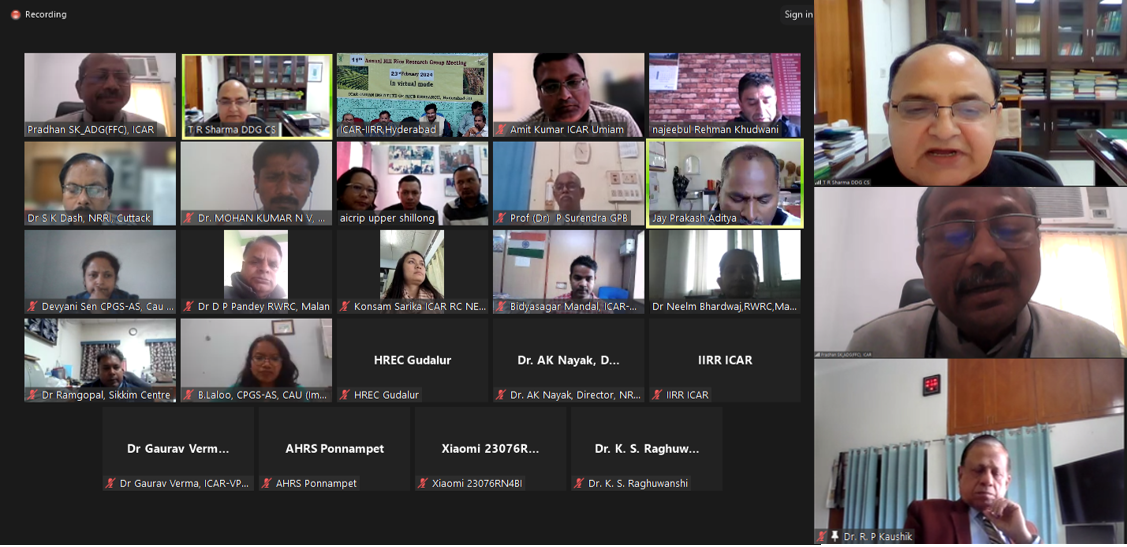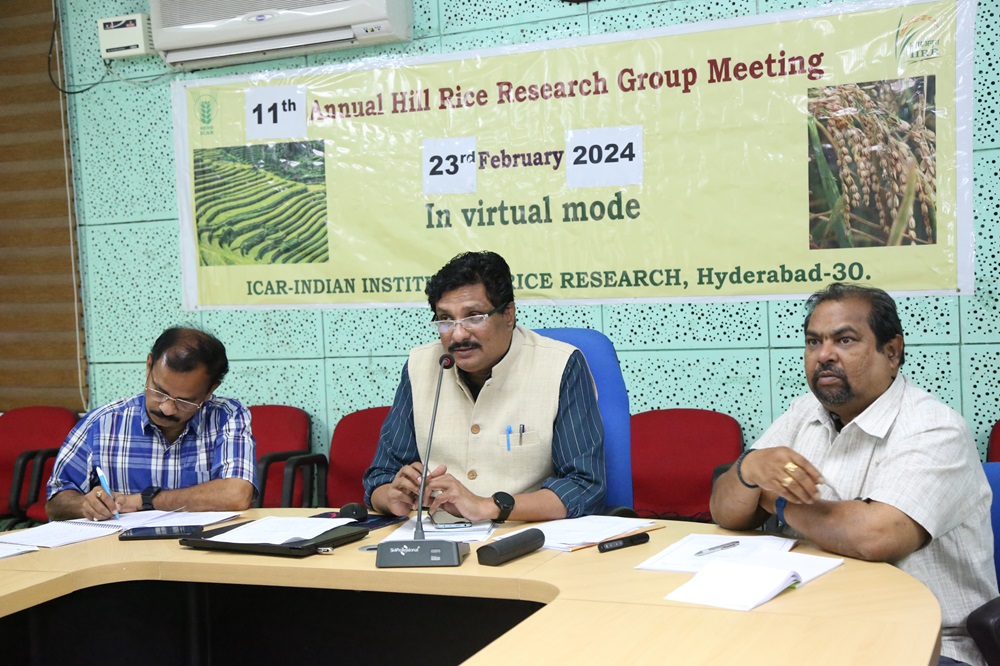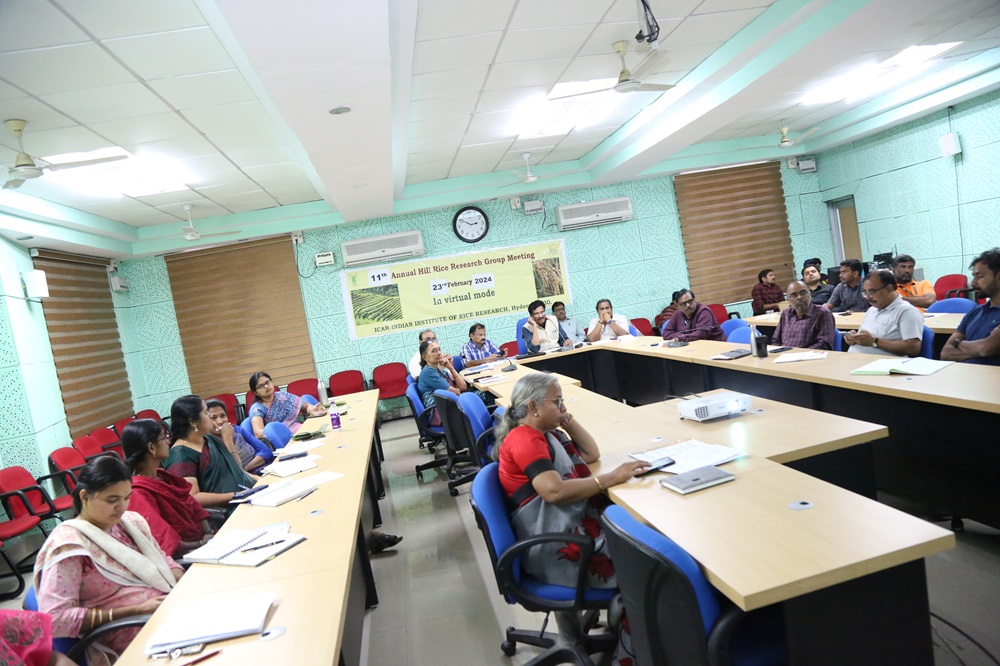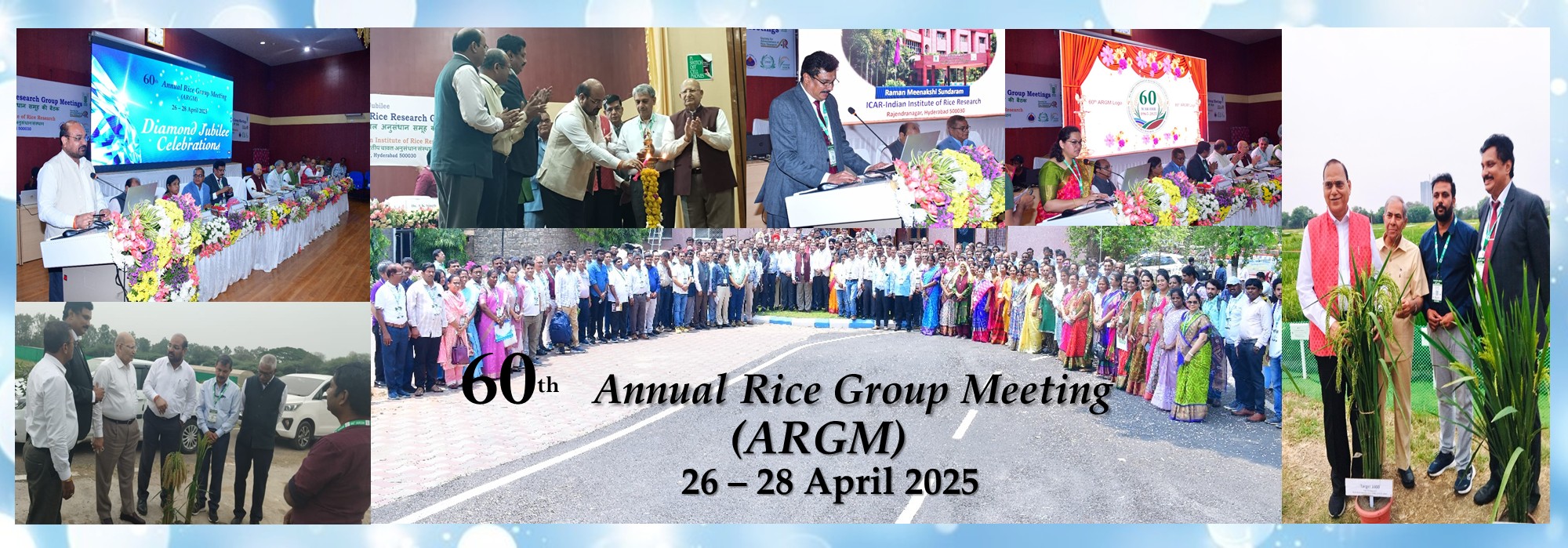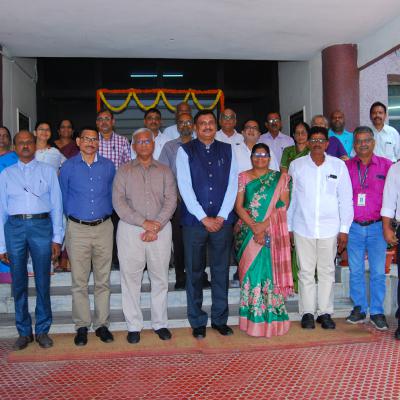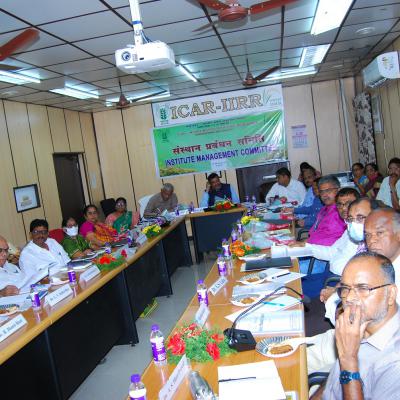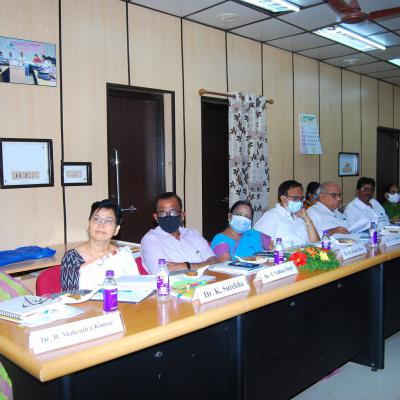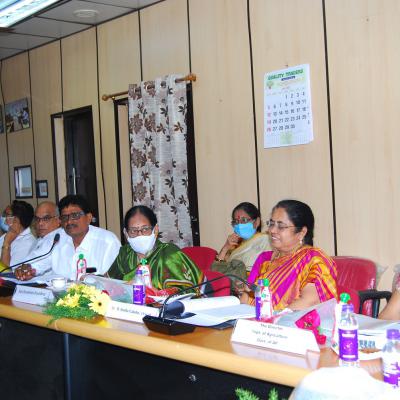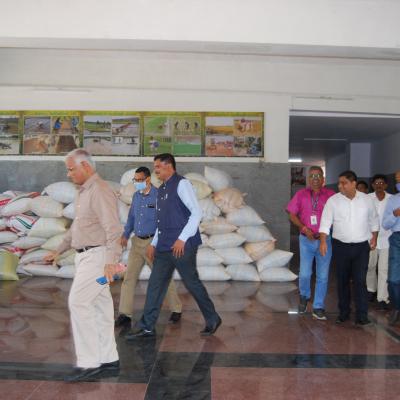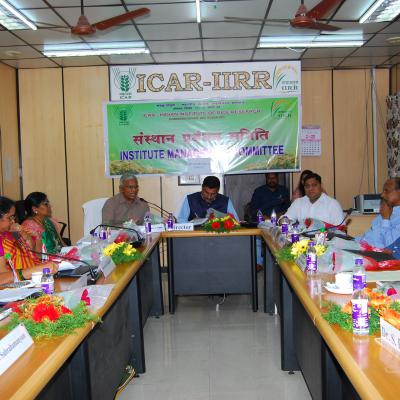Dive into the future of crop breeding with our upcoming course on Fundamentals of Genomic Predictions and Data-Driven Crop Breeding!
You may also know more about this training course through this page: https://education.irri.org/
Course Description
In collaboration with the Indian Council for Agricultural Research – Indian Institute of Rice Research (ICAR-IIRR), the course “Fundamentals of Genomic Predictions and Data-Driven Crop Breeding” offers a thorough exploration of the latest techniques in modern plant breeding. Participants will delve into the areas of quantitative genetics and statistical genomics, acquiring vital knowledge of genomic selection strategies and their practical applications. The curriculum includes advanced statistical models such as linear and mixed models, ridge regression, Bayesian methods, and kernel approaches, giving participants a strong foundation in predictive breeding.
Additionally, the course covers new concepts like the Usefulness Criterion and Optimal Parental Contributions, aimed at enhancing the effectiveness and efficiency of crossing strategies. It also addresses the dissection of genotype-by-environment (G x E) interactions in crop breeding, employing predictive tools for their analysis. Attendees will learn about innovative approaches for designing training and testing sets, incorporating sparse testing, and more.
The course features a hands-on approach, allowing participants to work with real-world datasets to implement genomic selection in breeding programs, analyze G x E interactions, and design crossing strategies. This practical experience ensures that participants not only understand theoretical concepts but also develop the essential skills needed to apply genomic selection in their professional endeavors.
Designed for individuals with a basic understanding of crop breeding and genetics, the course is accessible to professionals with varied levels of statistical and R programming expertise, accommodating a diverse audience in the field.
Course Objectives
This course integrates quantitative genetics and statistical genomics with modern breeding approaches, focusing on genomic selection and data-driven decision-making in crop breeding. It enhances understanding of quantitative genetics, statistical models for genomic predictions, and genomic selection implementation in breeding programs. The course covers advanced techniques for parent selection and crossing block design using genotypic and phenotypic datasets. Participants will gain practical skills to apply these concepts in real-world crop improvement scenarios.
By the end of the training course, the participants should be able to:
- Gain the basic and advanced knowledge of quantitative genetic and statistical genomics relevant to modern breeding
- Understand the different relationship matrices and their use in genomic predictions and crop breeding
- Understand the linear and mixed models to perform phenotypic data analysis and genomic predictions
- Understand and apply the basic and advanced statistical models to perform the genomic selections
- Understand the fundamentals of genomic selection (3W’s of Genomic selection: Why, When, and Where to apply it in the breeding program)
- Understand the G x E interactions and design sparse testing design in dissecting G x E interactions and
- Understand the Usefulness criterion and Optimal Parental Contributions to design the crossing block and predict the performance of cross combinations.
Target Learners
Plant breeders, geneticists, graduate students, postdoctoral fellows, research scholars, and assistants involved in crop breeding programs. This course is mainly intended for those keen to learn the modern data-driven breeding approaches and how to leverage the data sets to perform genomic selection and implement them in breeding programs.
Key Modules:
- Module 1: Introduction and Learning R and R Markdown
- Module 2: Fundamentals of Quantitative Genetics and Predictive Modeling
- Module 3: G x E Interactions Dissection in Predictive Breeding
- Module 4: Practical Implementation of Genomic Selection in Plant Breeding
- Module 5: Breeding and Crossing Scheme Optimizations.
Learning Modality
The course will be delivered face-to-face with a mixed modality of synchronous and asynchronous discussions involving theoretical concepts, practical and hands-on exercises, and self-paced e-learning activities.
Participants eligibility
The participant highly encourages a basic understanding of breeding and statistics. Experience in using and running R is highly encouraged.
